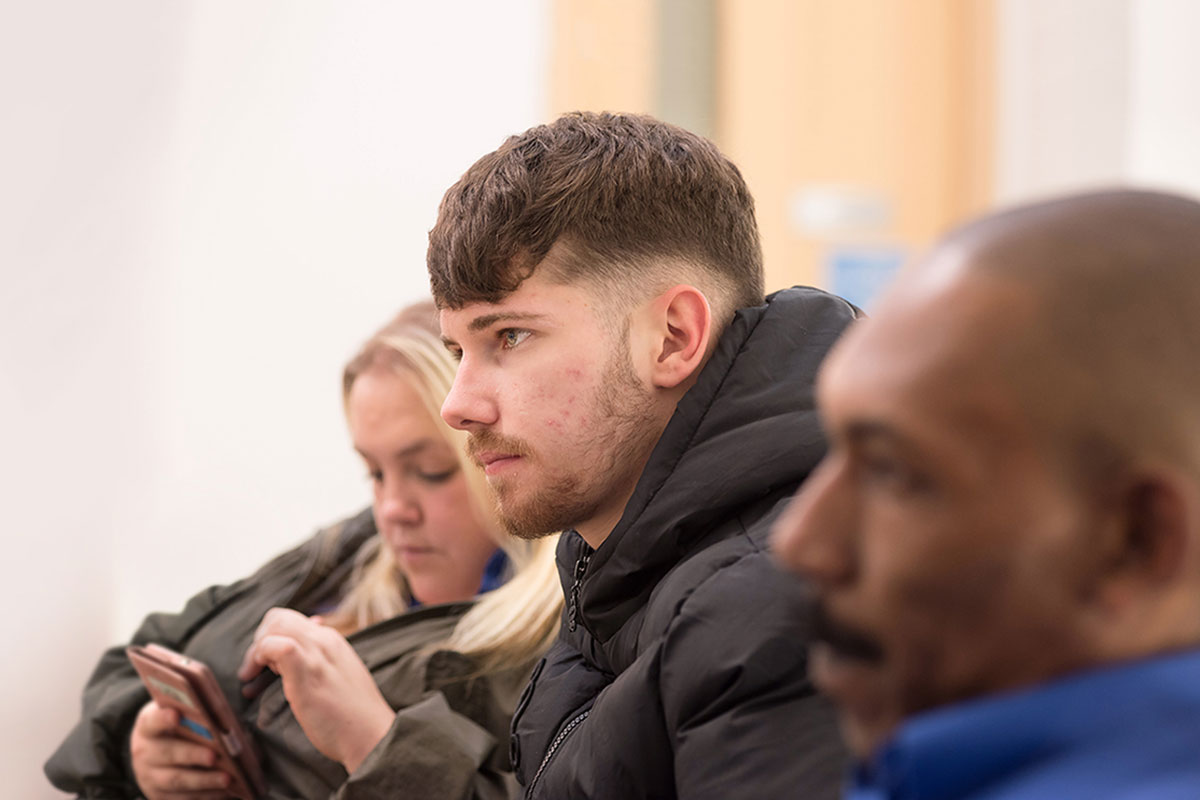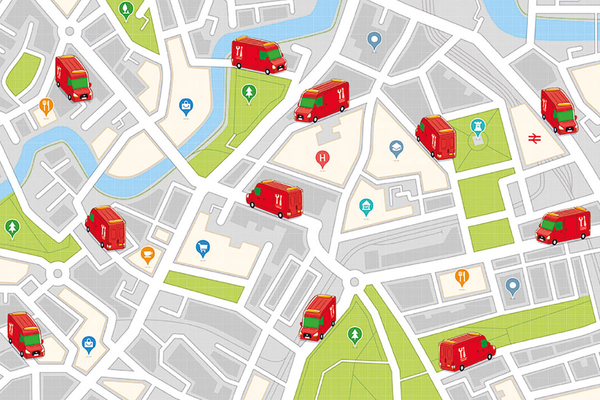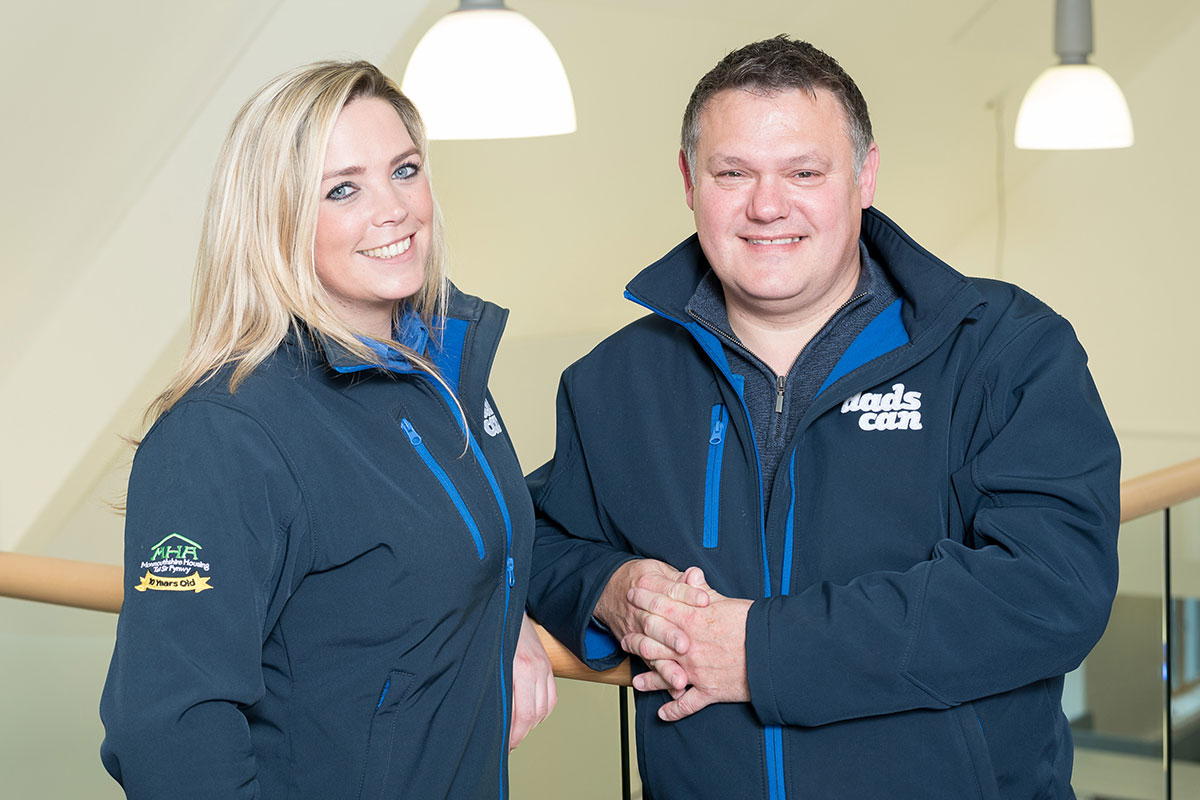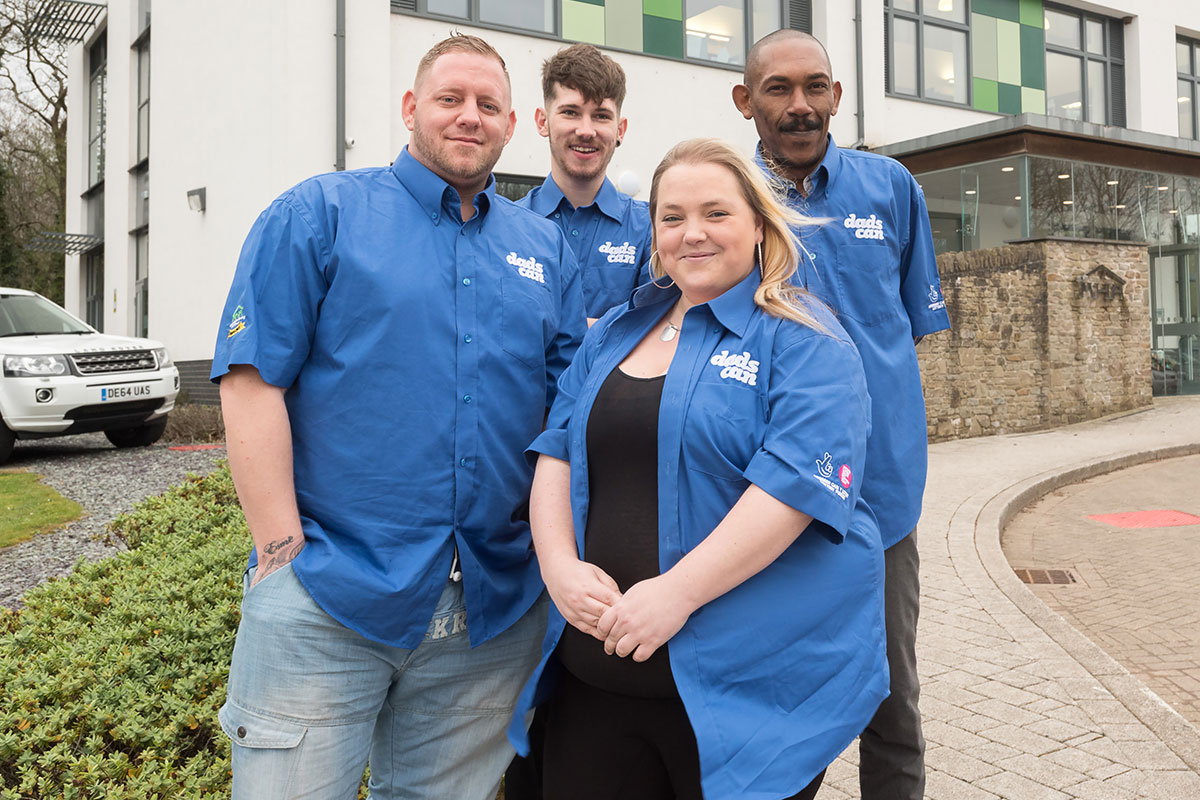You are viewing 1 of your 1 free articles
The housing association helping fathers play a positive role
Why did a Welsh housing association set out to help local dads? Talia Loderick finds out more. Photography by Ian Homer
Josh Pitt, who heard about Dads Can from charity Mind
“Fifteen-year-olds are more likely to own a smartphone than have a father at home", says Katie Double, project co-ordinator at Dads Can, a pioneering project by Monmouthshire Housing Association to support fathers.
Dads Can was set up by the 3,600-home association in 2013, in response to a growing awareness that local fathers were being left behind when it came to parenting support, as services are generally aimed, primarily, at mums.
Dads Can works with fathers across Monmouthshire and Newport in south-east Wales, providing information and support on parenting, education, training and employment opportunities, and signposting to housing and legal support.
But the project offers more than that, explains Ms Double.
We are speaking at the headquarters of Monmouthshire Housing Association, a smart building tucked away in a quiet business park off a busy A-road in the village of Mamhilad. The housing association’s office is home to Dads Can.
Ms Double says: “Yes, we support dads with parenting skills, doing dad and baby sessions. But we also offer bespoke emotional support. We provide coaching, mentoring and positive male role-modelling to our dads to bring about positive behaviour changes and reduce the likelihood of ‘adverse childhood experiences’.”
"Dads Can caters to all men fulfilling a father-figure role"
Adverse childhood experiences (ACEs) is a term that social workers and others use to describe traumatic experiences in childhood, such as abuse, neglect and growing up in a house where domestic violence or substance abuse is present.
Parental separation is also counted as an ACE.
“We work with more than 100 organisations. Dads are referred to us by agencies such as probation and social services,” says Ms Double. “We also accept self-referrals. However dads reach us, the main thing is that every single one of them needs emotional support.”
Despite the name, Dads Can isn’t exclusively for dads. It caters to all men fulfilling a father-figure role, including stepdads, foster fathers and even older brothers and uncles.
Ms Double oversees the running of Dads Can with the casework of approximately 40 dads shared between the project’s two development workers, both male.
Shane Hatherall, a development worker, says it’s hard for men to know how to be a good father if they’ve not had positive role models themselves.
This, along with male-pride reluctance to ask for help, mental health conditions such as depression and anxiety, and a lack of engagement with parenting services negatively impacts the ability of many dads to play an active and positive role in their children’s lives.
“My role is that of a professional parent or professional friend,” he says. “When a dad comes to us, we will go and meet with them in their own space so they feel comfortable.
“Quite often, they just need to get matters off their chest. Then we help them focus by asking for their three priorities, one of which might be legal advice for childcare proceedings, for example.”
Dads Can works with a local solicitor who provides free or nominal fee legal advice. This has resulted in 16 dads increasing or gaining access to their children in the past year.
“Around 40% of our dads come to us for advice and support on gaining access to their children,” says Ms Double. But Dads Can recognises that not all dads play a positive role in their children’s lives.
Project co-ordinator Katie Double with development worker Shane Hatherall
Mr Hatherall says: “The safety of a child is paramount to us. We work very closely with social services, so if a father doesn’t have contact with their child because of domestic abuse, for example, we’ll work with him on positive behaviour change but we won’t work with him to gain access to that child.”
Dads Can provides men with opportunities to meet other dads, through dad-only activities, such as dry-stone walling in the Wye Valley, and tasks which gets them active.
Mr Hatherall adds: “A lot of our dads are existing rather than living. They live sedentary lives, unemployed with no hobbies, and when relationships break down they can end up isolating themselves.
“We help men find their purpose as a dad and as a man, so they see themselves as valuable. We build men’s confidence and the transformation we see is remarkable – men who wouldn’t leave the house are finding work, going to Asda, going to the gym.”
While Dads Can supports dads going through troubling times, such as social services involvement, it also welcomes men who don’t have such challenges but who can benefit from being part of something like Dads Can.
“We help men find their purpose as a dad and as a man.” - Shane Hatherall, Dads Can
Men like Josh Pitt, 23, from Newport, who got involved with the project 18 months ago after his then-girlfriend decided not to continue with her pregnancy. Mr Pitt says: “I was having one-to-one sessions with Mind, the mental health charity, and they brought up Dads Can. I was so low on confidence back then, I used to wear sunglasses all the time so no-one could see my eyes. It was a coping mechanism.
“Being involved with Dads Can has given me the confidence to push myself forward. Katie [Double] has supported me with going to the gym. I’m now volunteering for Dads Can and I’m working on a care qualification so I can get a job.”
That Mr Pitt is speaking to me across a table, no sunglasses in sight, shows how his confidence has grown. Sat nearby is Nicky Thompson, 26, from Newport, who laughs as he recalls Josh’s “sunglasses days”.
Mr Thompson has been involved with the project from the beginning. He is father to Kian, aged six, Ethan, aged four, and 11-month old Esme, with his partner Jessica.
He’s an outwardly confident character who, once we get talking, brings up a video of himself on his phone singing – and nailing – Sam Cooke’s A Change is Gonna Come.
So, it’s a surprise to hear Mr Thompson was low on confidence when he first became involved with Dads Can.
“I found out about Dads Can through the job centre. I was low because I didn’t work and wasn’t able to provide for my family. I built a really good relationship with Dom, who used to work here, and we worked on my confidence.
“I found work as a technician for my local Superbowl and I was there for two-and-a-half years. I’m now working nights for Tesco doing distribution. Through Dads Can, I’ve been able to take my family on trips and days out, things that I wouldn’t have been able to afford otherwise. A whole load of us dads and our families went to Noah’s Ark Zoo Farm on a day out, for example. It feels like a community.”
Left to right: Nicky Thomson, Josh Pitt, Kim Holly, Naji Ahmed, who are all involved with Dads Can
Dads Can isn’t exclusively for Monmouthshire Housing Association tenants. So, why did the housing association set up this project?
John Keegan, chief executive of Monmouthshire, explains: “The housing association works to build and support brilliant, resilient communities. This is also what Dads Can does by helping dads be strong role models and play a positive role in their children’s lives.”
Initial research carried out locally to establish whether there was a need for Dads Can involved speaking to mums, dads, health professionals and parenting services.
Local midwives and health visitors reported that dads tend to be left out. And two ‘dad and child’ groups in the area said there were challenges in attracting young dads. Both groups said they felt young dads weren’t confident enough to approach them.
Monmouthshire Housing Association’s neighbourhoods team reported that the tenancies of seven young fathers had ended during the time Dads Can was bidding for start-up money. They felt this could have been avoided with appropriate support. Now, in its fifth year, the project has engaged with more than 400 dads, with 94% saying they feel more confident and positive about their future.
The project has also helped remove 15 children from the child protection register in the past 18 months by working with dads to do the things asked of them by social services in the at-risk child’s care and support plan.
Dads Can made the final of the UK Housing Awards 2018 in the ‘Outstanding approach to equality and diversity’ category, but its future hangs in the balance.
It costs about £139,000 a year to run, says Ms Double, with the bulk of this money coming from the Big Lottery Fund, plus about 10% match-funding from the housing association. But the project’s lottery funding runs out in February 2019.
Dads Can has bid for further lottery funding and is also applying to the Esmée Fairbairn Foundation, which supports work focused on children and young people, and social change.
It also has the support of Nick Ramsay, the Welsh Assembly member for Monmouthshire, and he held an Assembly debate last week calling for the project to be funded by the Welsh Government as a pilot scheme. (The Welsh children’s minister, Huw Irranca-Davies, said funding was a matter for the local authority.)
“We need to secure funding to continue,” says Ms Double. “Potentially, the housing association might fund a development worker post but, in its entirety, £139,000 is a lot of money to stump up. We find out about our lottery funding bid at the end of May, so fingers crossed.”













